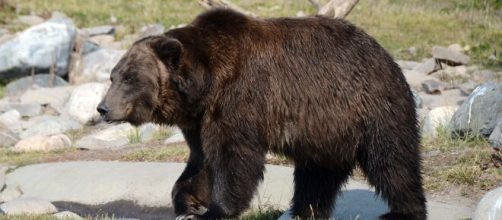On Friday, June 18, a wild brown bear entered the Okadama Air Base of the Japan Air Self-Defense Force, located in Sapporo's city in the north. It was reported on Friday by The Washington Post and other official media. It is noted that after entering, the animal attacked one of the servicemen of the airbase. The state of health of the victim is not reported. At least four people were subsequently injured as a result of the bear rampage.
According to NBC News, the bear also entered Okadama Airport, which borders the airbase of the same name. The animal was near the runway and then climbed over the fence, leaving the area.
The administration temporarily suspended all departures to check for possible damage from the incident. According to the NHK public broadcaster, eight flights at the airport were canceled and 10 schools in the city were closed.
It should be noted that earlier, a bear attacked two older adults in the capital of Hokkaido Prefecture. As a result, an elderly couple of 70 and 80 years old and a 40-year-old man were injured. Although they were taken to the hospital, the details of their condition are not specified. Two helicopters were called in to track the bear, and local hunters joined the hunt. Since attempts to catch the bear proved futile, the animal was shot.
Bear habitats
It is noted that it was hiding in a thicket near the airbase.
The size of the animal from the withers is about 1.5 m. The killed animal belongs to a species of brown bear inhabiting the northern island of Hokkaido. In Japan, the places where bears live are urban areas where residential and commercial facilities are lined up along the municipal subway. Therefore, the authorities of the city of Sapporo urged the residents of the area to stay at home.
The number of dangerous encounters between bears and humans in Japan has risen sharply in recent years as the animals increasingly descend the mountains searching for food. Last year, experts blamed the sharp increase in encounters on a lack of acorns in the mountains, but there is a deeper reason: Japan's declining rural population.
This situation has led to the abandonment of farmlands in the foothills, which were once a barrier between the mountain dwellings of the bears and the densely populated areas on the plain. As a result, bear habitats have expanded into these flatter lands, which are much closer to populated areas.
Other cases of bear attacks in Japan
As Regnum news agency reported, on November 8, 2020, a wild bear attacked a resident of Ishikawa prefecture in Japan. As a result of the animal's attack, the woman sustained injuries to her arms and head.
In Japan's fiscal year 2020 (April 1, 2020 - March 31, 2021), authorities recorded 158 cases of bear attacks on residents, which was a record. According to experts, the animals were motivated, in particular, by the poor harvest of acorns and wild chestnuts, the mainstay of the bear diet in Japan.


